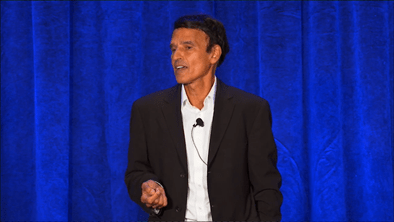Accountable Care Organizations (ACOs) have been around for more than a decade—created with the idea that integrating care providers across settings (hospitals, primary care, specialty care, etc.) and aligning their financial incentives would lead to improved clinical outcomes and lower healthcare costs.
And indeed, some of the most effective and efficient healthcare organizations in the country are ACOs. These organizations have successfully improved preventive and acute care, eliminated wasteful services, avoided unnecessary hospitalizations and reinvested the costs savings into programs that make patients even healthier.
But their success raises an obvious question: Why hasn’t every doctor and hospital moved toward the ACO model?
I had the opportunity to answer this question during a keynote address at the Fall 2021 NAACOS Conference (Sept. 30-Oct. 1). The National Association of ACOs (NAACOS) is a wonderful organization that fosters the growth of ACOs and educates the public about the value of accountable care. It was honor to speak to this audience, live and in-person, from Marriott Marquis in Washington, D.C., where the agenda featured leading healthcare experts and CMS officials, all sharing timely and essential information for ACOs.
On stage, I explained why even ACOs that manage to achieve integration across specialties—and thereby improve the quality and consistency of care they deliver—often fail to lower costs.
That’s because some ACOs are held back by a major monetary flaw in the healthcare system. In the United States, the primary reimbursement model in healthcare has for decades remained “fee-for-service” (FFS). No matter how sound the strategy or good the intentions or ideal the model, no ACO can effectively lower costs with fee-for-service because FFS is antithetical to cost containment. With FFS, it is always easier and more lucrative to do more than to do better. With FFS, clinicians earn more for seeing a patient twice even when one visit will suffice. With FFS, it is financially wiser to hire and retain more specialists than primary care doctors, even though primary care physicians are expert at preventing disease, reducing complications from chronic illness and doing all the things that both improve clinical outcomes and lower overall healthcare costs.
This is why physicians who are part of an ACO must be capitated (prepaid) at the delivery-system level. Of course, this is not the only change that needs to happen, but it is the first and most step toward bringing about meaningful change.
With capitated payments (made in advance to the combined hospital-and-physician organization to cover all of the care required for a defined patient population) the incentives for doctors change. Capitated ACOs have incentives to prevent illness and reduce the risk of complications from chronic disease (rather than wait for them to happen and then intervene), so they hire more primary care doctors and provide each with more clinical support. Capitated ACOs have incentives to keep patients out of the ER, so they invest in telehealth technologies that can provide round-the-clock virtual care that has been shown to reduce (not raise) costs. And capitated ACOs have incentives to keep all patients as healthy as possible, so they make it a priority to eliminate disparities in medical care that frequently exist for underserved patients.
Once these changes materialize, ushering in better care at lower costs with healthier patients and more satisfying work, another important change occurs. The culture of medicine—the values, norms and beliefs that shape the decisions and actions of doctors—begins to evolve alongside the healthcare system.
The importance of culture cannot be overstated when it comes to improving American healthcare. Doctors today feel overwhelmed, frustrated and exhausted with what medicine has become: a profit-driven, bureaucratic machine that prevents physicians from doing the one thing that’s most important: keeping people healthy. Capitation, alone, won’t solve all the problems healthcare faces. But by changing the payment model, we can improve quality and lower the cost of care, and thereby create an environment in which the culture of medicine evolves in new and rewarding ways.
Across the country, ACOs, including many of those represented at this conference, have already taken giant steps in the right direction. And I’m optimistic that they’ll help lead others move from fee-for-service to capitation and transform the culture of American medicine for the better.
Special thanks to Tom Kloos, executive director of Atlantic ACO and Optimus Health Partners for the warm and generous introduction he gave before my presentation. Thanks also to event sponsor Olio, which sent every ACO attendee home with a signed copy of “Uncaring: How the Culture of Medicine Kills Doctors & Patients.” Above all, thanks to the NAACOS staff, including: President and CEO Clif Gaus, Director of Operations Anna LaFayette, Senior Vice-President of Operations Jennifer Muldoon, and many others at NAACOS who organized the event and are helping to lead the ACO movement in America.
* * *
Dr. Robert Pearl is the former CEO of The Permanente Medical Group, the nation’s largest physician group. He’s a Forbes contributor, bestselling author, Stanford University professor, and host of two healthcare podcasts. Pearl’s newest book, “Uncaring: How the Culture of Medicine Kills Doctors & Patients,” is available now. Follow him on Twitter @RobertPearlMD.








[…] Full Article […]